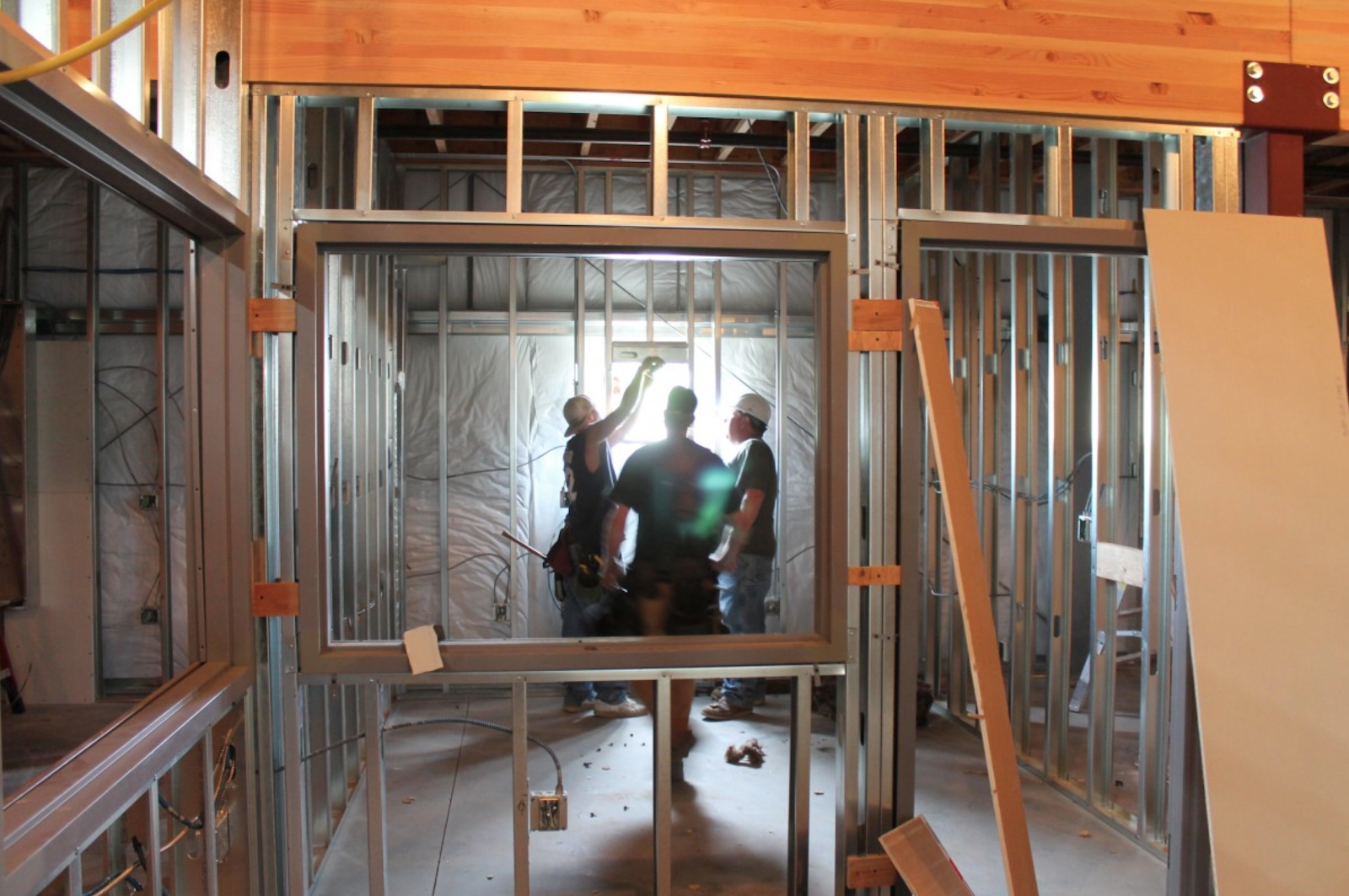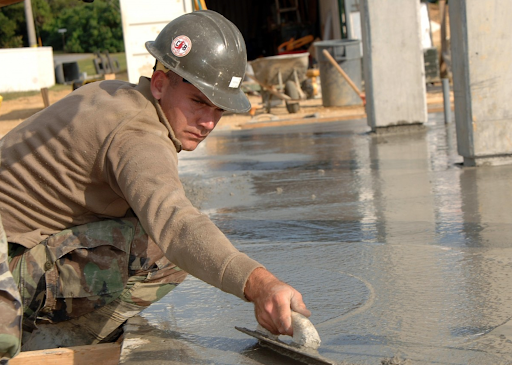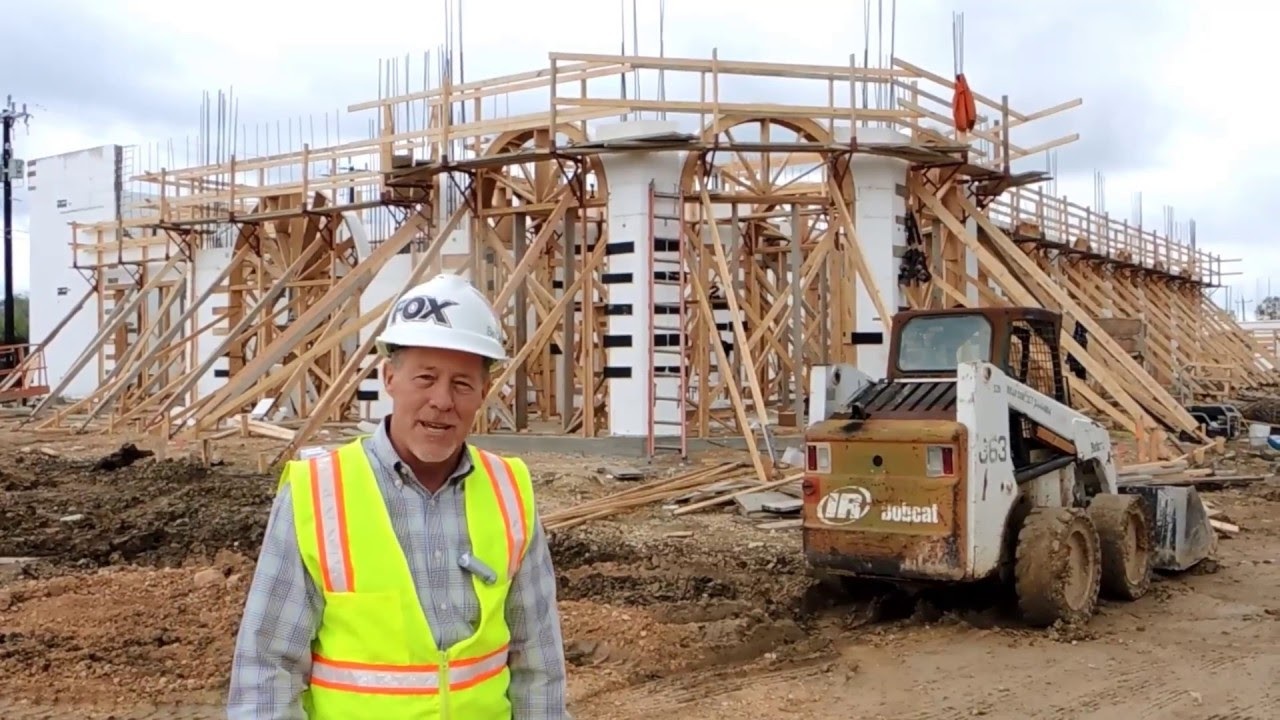
The Importance of Contractor Training and Product Knowledge

Residential construction continues to boom, with permits issued for single and multi-unit buildings at an annual high in the U.S. of 1,639,000, heavily concentrated in the south. Furthermore, a University of Michigan study predicts an increase in commercial building floor space of 39 percent (124.7 billion square feet) in 2050 over 2017.
Increasing demands for residential and commercial construction provide a tremendous financial opportunity for contractors, architects, developers, and skilled and unskilled trades people.

However, even with all the potential business, contractors must still maintain a competitive edge to ensure their business success. Successful contractors find that committing to continuing contractor training and engaging in ongoing product knowledge is key to their success.
Why Contractors Should Seek Continuing Education and Product Knowledge
A house or building often represents the most significant expense of a family or business. New home and building owners trust that their contractor has a solid knowledge of the latest building methods and products to ensure their new structure's value. Fortunately, today’s contractors can obtain continuing education and product knowledge through face-to face and online training, accommodating their busy time frame.
Continuing education provides contractors with the newest information on building codes and techniques that advance design and building methods, and helpful strategies, along with marketing skills. A contractors' knowledge of the newest building techniques that promote quick, safe, construction with durable, healthy, energy-efficient, and eco-friendly structures gives them a significant edge over contractors using outdated, traditional building methods.
A contractor’s expanded knowledge of building products will give the client confidence in their contractor's abilities and skill. A competitive contractor, with or without their subcontractors, can ensure their client of his or her expertise in installing the building products — crucial to the success of any building project. Furthermore, a contractor's ability to clearly present accurate knowledge of how a product's design will benefit the structure’s durability, sustainability, IEQ, and short- and long-term costs demonstrates the expertise of the contractor, giving them a competitive edge.

Advantages of Innovation to Contractors
Advancements in building science and engineering lead the way in innovative building products and techniques. These innovations improve the resilience, energy-efficiency, and safety of new homes and buildings, both during and after construction. They also help contractors comply with the complicated and evolving building and energy codes.
How Innovative Building Training and Products Contribute Towards a Successful Business
Staying competitive and ensuring a successful construction business requires contractors to stay updated on the latest innovative strategies and products through contractor training and good ongoing communications with manufacturers of construction products.
As a contractor, you will find the payoffs for incorporating these types of tasks into your work routine well worth your time. Specifically, contractors that seek the latest training for innovative building methods and products will speed up construction time, enhance sustainability, improve productivity and efficiency, and limit job-site injury.
Speed Up of Construction
Innovative strategies and products help contractors speed up delivery time, particularly important in these times of labor shortages and escalating building product prices, especially lumber costs. These challenges make it difficult for a builder to stay on schedule and turn a profit. Innovative strategies and products quicken construction and limit a contractor's dependency on labor, saving both time and money.

Improving Sustainability
REALTORS® reports that 61 percent of their clients consider sustainability an essential feature in their homes, with 95 percent wanting comfort in their living space and 78 percent are concerned about utility costs.
Sustainable design includes energy-efficiency, durability, and excellent indoor environmental quality (IEQ). All features save on monthly bills, maintenance, repairs, and potential replacement of building systems, compared to traditional construction methods. Sustainable design preserves our natural resources, limits waste, and decreases air pollution — ensuring a safe environment for our future generations.
A recent report predicts an increase in 2021 to 47 percent for new sustainable-green construction projects, further providing contractors business opportunities. To stay competitive, contractors must keep up with sustainability training and product knowledge.
Enhances the Productivity and Efficiency of Your Building Team
Contractors with innovative training of strategies and products can pass their knowledge on to other team members, improving their business's overall quality. Providing on-the-job training to your employees also enhances their confidence, prepares them for more responsible roles in the company, and helps retain their services. Well-trained employees will work more efficiently and produce better quality work. They appreciate their increasing skill and knowledge of the building trade — all factors that will save a contractor money by lessening completion time, minimizing repairs due to poor craftsmanship, and lower recruiting costs.
Improves Risk Management
Ongoing training can help a contractor promote a safe work site. In 2019, the construction industry experienced nearly 80,000 non-fatal injuries and accounted for 20 percent (1,061) of worker fatalities in private industry. Construction injuries cost $11.5 billion, $7 billion of which was due to injured workers days away from work.
Contractors that implement innovative bundling methods and products that promote safety will limit injuries at their job site, protect their employees, and save money by keeping their projects on schedule.
Innovative and Evolving Building Envelope Products and Techniques
Innovations in the strategies and products for a building envelope aim to improve a structure’s energy-efficiency, durability, and indoor environmental quality (IEQ), taking into account how the envelope interacts and interfaces with the whole system. These innovations require contractors to obtain more installation skills and understandings of how the building envelope, including the wall system, interacts with the whole structure.

Education on Insulated Concrete Forms (ICF)
In 1937, innovative building scientists in Belgium created the first ICFs, promoting them as fast, cost-effective, and solid building strategies, using mostly unskilled labor.
However, the first modern patent application of ICF wasn't until the late 1960s. Today’s growing ICF market includes 70 percent single-family homes and 30 percent for multi-family or commercial buildings. Predictions indicate that the global ICF market will attain a compound annual growth rate (CAGR) of 27.5% between 2017 and 2022.
Fox Blocks offers ICF construction training that enhances a contractor's ability to achieve a successful and profitable business — speedy and safe installation, sustainable construction, and excellent on-site training for both you and your employees.
The Importance of ICF Product Knowledge and Training
Like all building products, before choosing an ICF manufacturer, contractors should understand the different ICF products. ICF products vary slightly in style, width, height, length, EPS insulation thickness, interlock, etc. These components will influence the design and construction drawings, along with the material and labor estimates for blocks, concrete, and rebar.
ICF Product Knowledge
Product knowledge of ICFs plays a vital role in the initial design stage, particularly when calculating material and labor estimates. A contractor uses product knowledge to calculate the exact number of ICF blocks, concrete, rebar, and accessories, thereby able to accurately compare quotes between each manufacturer.
ICF Installation
Some contractors may find similarities between the installation of different ICF products, but must carefully study each manufacturer's specific installation instructions and techniques to determine which one will be an easier, more friendly installation.
For each ICF manufacturer, contractors should review and understand the variety of available products, the block configurations, the interlock, the engineering requirements, the availability, and the company's technical support. On-site installation training allows the contractor and the crew to understand the correct installation techniques, enabling them to take advantage of ICFs' efficiencies.
Fox Blocks Integrated Learning Center
Fox Blocks Integrated Learning Center (ILC) offers online training to provide step-by-step comprehensive and best practices for installing insulated concrete forms (ICFs). The ILC also provides educational videos on the use and applications of Fox Blocks ICFs and accessory products. Completing the Primary Installer Training acknowledges you as a Fox Blocks Primary Installer with a Certificate and Wallet card.
Fox Blocks construction team and technical experts, each with over 25 years of experience, have provided thousands of contractors with ICF construction training. From this experience, we developed a multi-faceted, in-depth training and educational website so that you can easily access our knowledge and expertise. The site provides self-paced training modules for a primary installer. You can also access various levels of courses as you gain skill and proficiency. The site further adds to your education by offering an expanding video library featuring on-site videos and explanations for product application details and techniques.
Fox Blocks ILC links to the main Fox Blocks website with an extensive resource library of technical bulletins, testing reports, code documents, and specifications, as well as everything related to product knowledge, applications, and details.
Fox Blocks has a proven record for successful residential and commercial projects. Our product support team ensures this success, along with a vast manufacturing and distribution network across the U.S. and Canada.
Stay Competitive with ICF
The changing design and construction industries require contractors to keep up with the times. To stay competitive and ensure a successful business plan, contractors should expand their knowledge and consider alternative, innovative products, like ICFs.
ICFs offer an option to traditional construction for below- and above-grade wall systems of any design or climate zone. Lightweight ICF creates sustainable homes and buildings with superior durability, energy-efficiency, IEQ, and disaster-resistance, compared to traditional wall systems. Moreover, easy, quick, and safe to install Fox Blocks ICFs speed up construction by combating labor and lumber shortages and lessening worker injury — thereby limiting delays that can destroy a project's timeline and budget.
A contractor that prioritizes ongoing training and enhancing their product knowledge with trusted technical support and concise educational tools will pave the road to a successful construction business.
Fox Blocks helps contractors stay competitive by offering superior ICF construction training aimed to improve construction efficiency and safety, and to create sustainable buildings and homes
Please refer to Fox Blocks Integrated Learning Center and Fox Blocks website for more ICF contractor training and product knowledge.